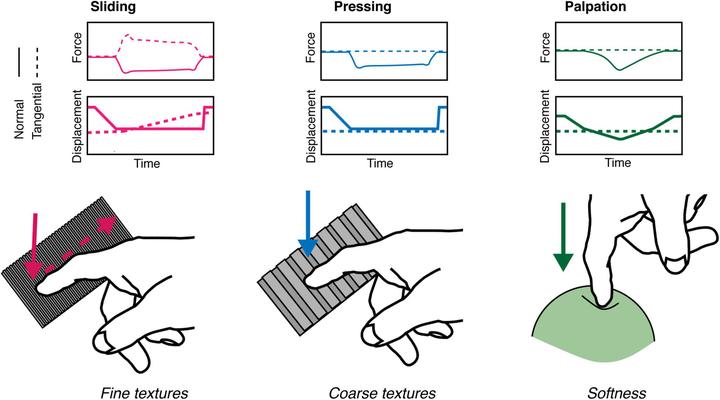Skin and mechanoreceptor contribution to tactile input for perception: a review of simulation models

Abstract
We review four current computational models that simulate the response of mechanoreceptors in the glabrous skin to tactile stimulation. The aim is to inform researchers in psychology, sensorimotor science and robotics who may want to implement this type of quantitative model in their research. This approach proves relevant to understanding of the interaction between skin response and neural activity as it avoids some of the limitations of traditional measurement methods of tribology, for the skin, and neurophysiology, for tactile neurons. The main advantage is to afford new ways of looking at the combined effects of skin properties on the activity of a population of tactile neurons, and to examine different forms of coding by tactile neurons. Here, we provide an overview of selected models from stimulus application to neuronal spiking response, including their evaluation in terms of existing data, and their applicability in relation to human tactile perception.